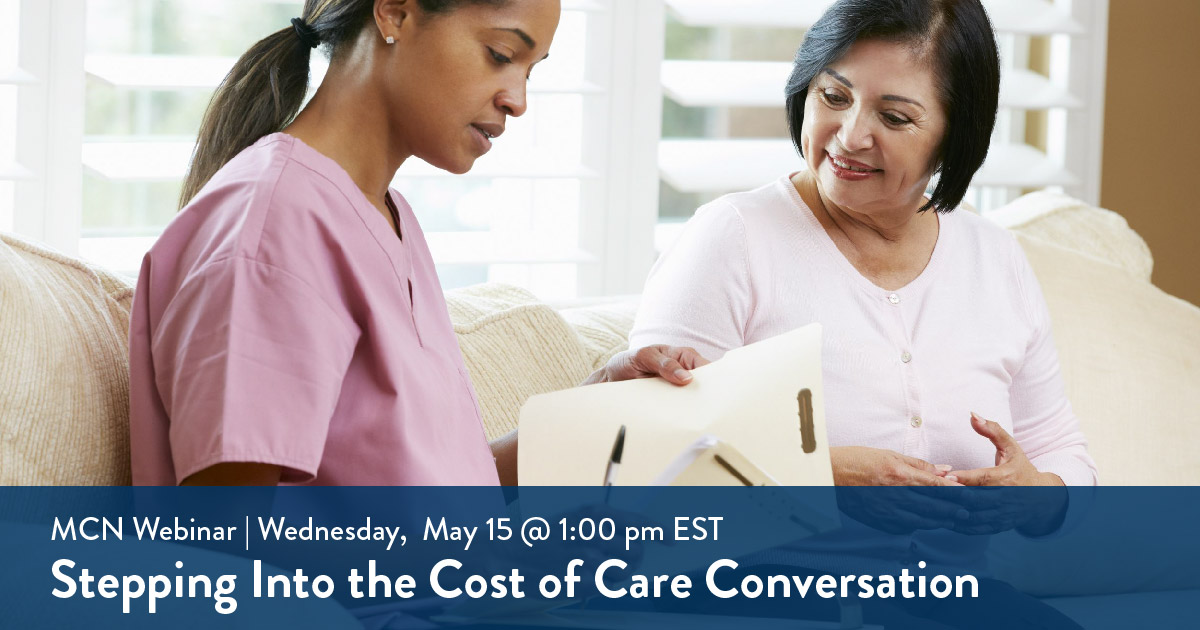
Clinic staff and clinicians typically assumed that others on the care team are addressing Cost of Care (CoC) concerns of patients, and expected that simply confirming insurance status is sufficient to address patients’ cost conversation needs. Both patients and providers report discomfort with conversations about healthcare costs and there are frequent instances of misunderstanding by patients of their financial responsibility for certain costs. Patients’ trust levels for staff and clinicians varied. Clinic workflow prioritized patient throughput rather than proactively exploring patient understanding of costs of copayments and deductibles, out-of-pocket costs for care or medications. Assessment of indirect costs of illness such as lost work time or transportation for treatments is often minimal. Additionally, the communication of patients’ CoC issues between staff across the steps of the medical visit is minimal.
The current state of cost-of-care conversations at many clinics leads to frequent misunderstandings and unmet CoC needs, which may ultimately increase the work and costs for both patients and their healthcare providers. Clinicians can play a larger role in facilitating conversations about costs with patients, especially those with low health literacy and their patients trust their insights. More frequent discussion of CoC concerns may improve adherence, and thereby outcomes. To assist with practice level improvement, administrators and staff can document CoC issues and better support patients’ understanding.
Watch the Webinar Recording
Download the Presentation Slides
Related Files
Take the Evaluation
- Participants will better understand the need for systematic, patient-friendly, culturally relevant CoC tools for patients, and for insightful CoC staff training that encourages and enables proactive exploration of CoC concerns.
- Participants will understand the principles of shared decision making and patient-centered care.
- Participants will explore current and best practices for conducting cost-of-care (CoC) conversations in primary care among vulnerable patients, and optimal methods for training FQHC staff members on this emerging CoC issue.
Presenters

Deliana
Garcia
MA
Chief Program Officer, International and Emerging Issues
Migrant Clinicians Network
As the Chief Program Officer, International and Emerging Issues for Migrant Clinicians Network, Deliana Garcia (she/her/ella) has dedicated more than thirty years to the health and wellness needs of migrant and other underserved immigrant populations. Throughout her career she has worked in the areas of reproductive health, sexual and intimate partner violence, access to primary care, and infectious disease control and prevention. Garcia is responsible for the development and expansion of Health Network, an international bridge case management and patient navigation system to make available across international borders the health records of migrants diagnosed with infectious and chronic diseases. She has served as the Principal Investigator or member of the research team for a number of studies addressing topics, such as sexual and intimate partner violence prevention among Latino migrant and immigrant families, trauma in transit for migrants crossing international borders, and emotionally-charged dialogue between patients and health care providers.
Continuing Education Credit (CEU)
To receive CME* or CNE credit after viewing this webinar, you must:
- Complete the Participant Evaluation associated with this webinar
- Send an email with your first and last name stating which webinar you completed to contedu@migrantclinician.org